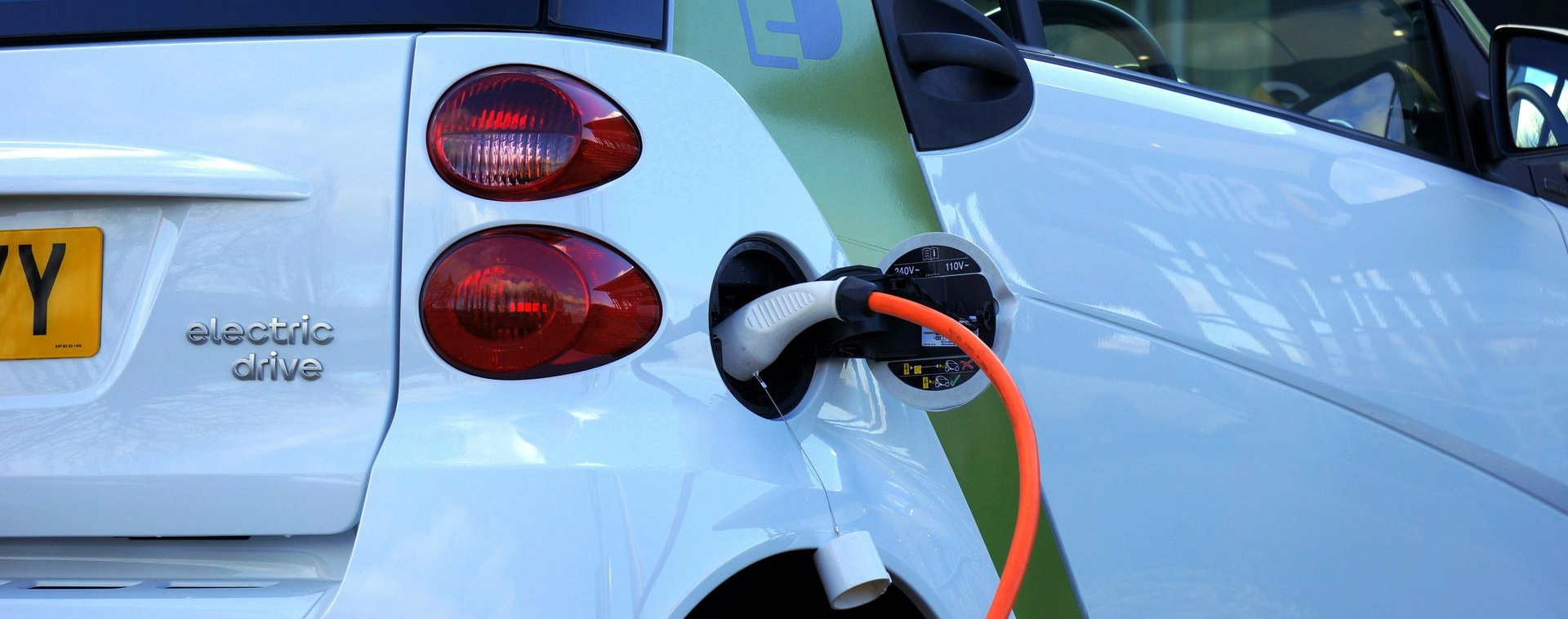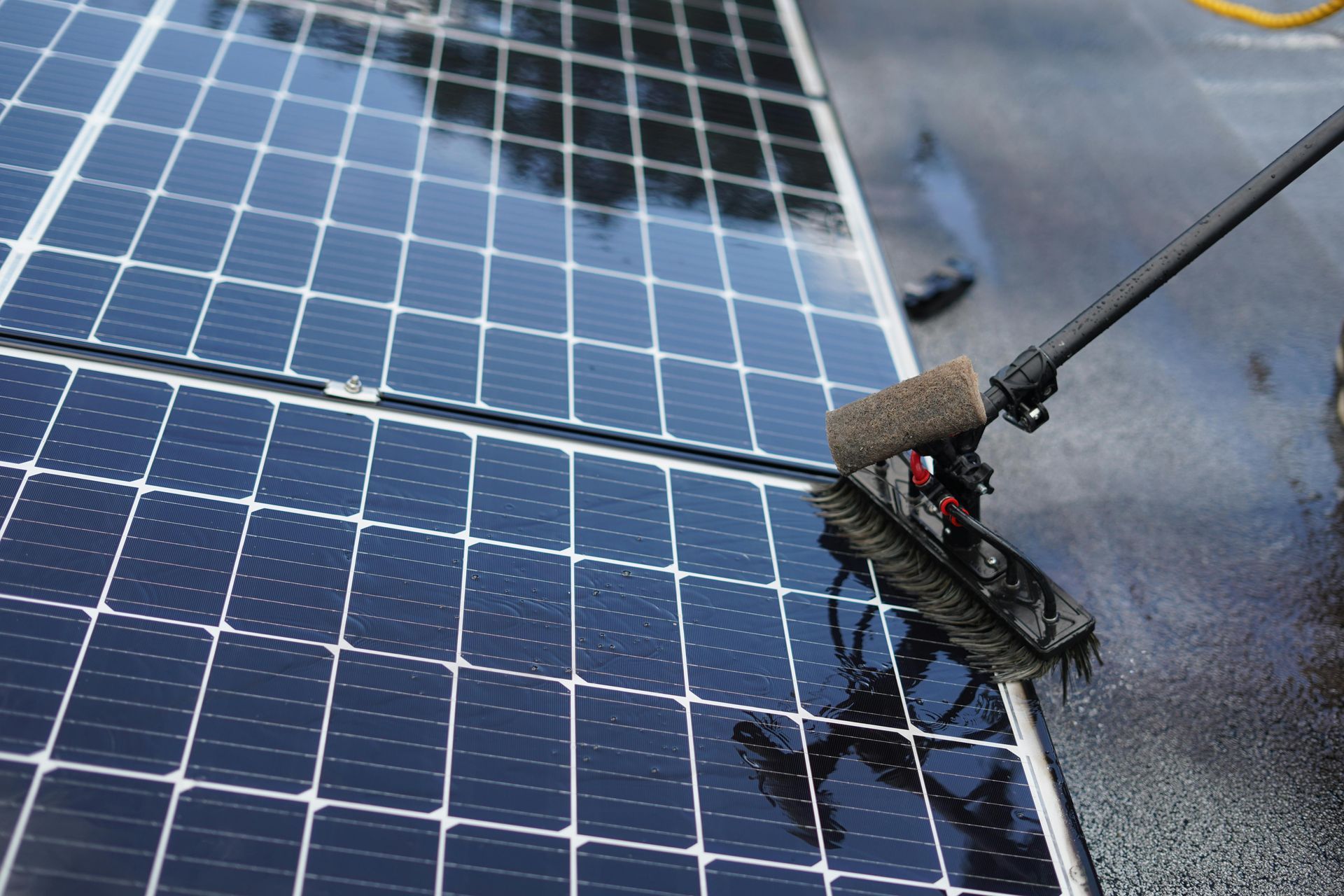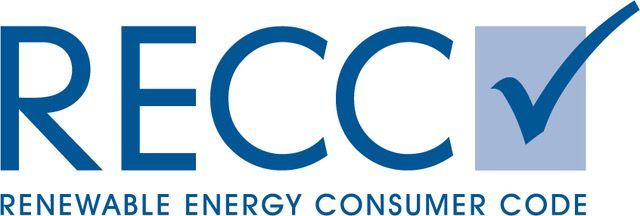How Solar Energy Benefits Electric Vehicle Owners
Using Solar Energy To Power Your EV

The combination of solar energy and electric vehicles represents a significant leap towards sustainable transportation. If you have solar panels powering your home and you drive an EV, is it feasible to charge your electric vehicle through your solar energy system?
Solar Panel EV Charging Explained
Solar panel EV charging is a process that utilises solar energy to power electric vehicles. This innovative approach combines photovoltaic technology with EV charging infrastructure.
The system typically consists of solar panels installed on rooftops or in dedicated areas, which convert sunlight into electricity. This clean energy is then used to charge the EV's battery, either directly or through the home's electrical system. According to Cyberswitching, the integration of solar panels and EV charging can significantly reduce reliance on grid electricity, making the charging process more sustainable and cost-effective.
Benefits of Charging EV with Solar
Charging your electric vehicle with solar energy offers numerous advantages. Firstly, it provides a renewable and clean source of power for your car, reducing your carbon footprint.
Secondly, solar charging can lead to substantial cost savings over time. By generating your own electricity, you can avoid or minimise grid electricity costs associated with EV charging.
Qmerit highlights that solar charging also offers greater energy independence, protecting EV owners from potential electricity price fluctuations and grid outages.
Home Solar Systems for EV Owners
Home solar systems tailored for EV owners are becoming increasingly popular. These systems are designed to meet the higher energy demands of households with electric vehicles. A typical setup includes solar panels, an inverter, and often a battery storage system. This configuration allows for efficient energy capture during daylight hours and the ability to charge EVs even when the sun isn't shining. The Clean Energy Connection suggests that combining solar with battery storage is particularly beneficial for EV drivers, offering flexibility in charging times and further reducing reliance on the grid.
Renewable Energy for Your Vehicle
Using solar energy to charge your electric vehicle ensures that your transportation is powered by a truly renewable source. This approach significantly reduces reliance on fossil fuels and grid electricity. Solar energy is abundant and inexhaustible, making it an ideal power source for EVs. By harnessing the sun's energy, you're using a clean, emissions-free method to fuel your vehicle.
Viridis Energy points out that solar-powered EV charging can dramatically decrease your vehicle's overall carbon footprint, contributing to a cleaner environment.
Cost Savings and Efficiency
Solar charging for EVs can lead to significant cost savings over time. While the initial investment in solar panels may be substantial, the long-term benefits often outweigh the costs.
By generating your own electricity, you can reduce or eliminate the need to purchase power from the grid for EV charging. This can result in lower electricity bills and protection against future energy price increases. Uprise Solar provides insights into how combining an electric vehicle with solar power can save money, highlighting the potential for substantial long-term savings.
Environmental Impact and Sustainability
The environmental benefits of solar-powered EV charging are substantial. This method of charging significantly reduces greenhouse gas emissions associated with vehicle use.
By using solar energy, EV owners can ensure that their vehicles are truly zero-emission, not just at the point of use but also in terms of the energy source. This holistic approach to sustainability can greatly reduce an individual's carbon footprint. Moreover, widespread adoption of solar EV charging could contribute to reduced demand on the electrical grid, potentially leading to fewer fossil fuel power plants and a cleaner energy mix overall.













